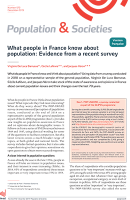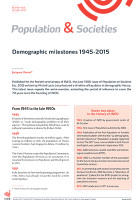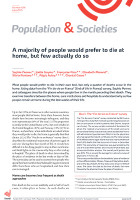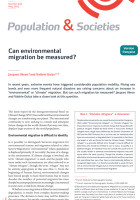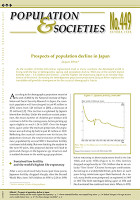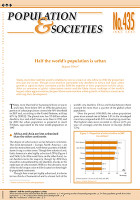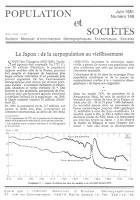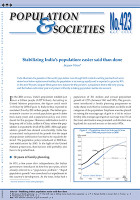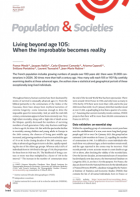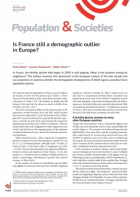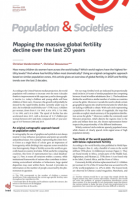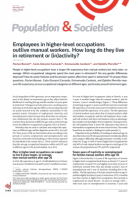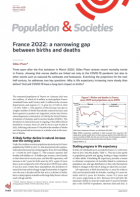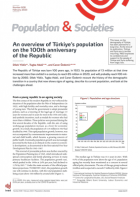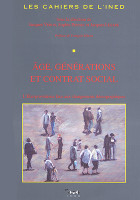
Age, génération et contrat social.
Collection : Cahiers
n° 153, 2004, 340 pages
Générations, contrat social et activité
Chapitre 1 – Économie du débat intergénérationnel
Chapitre 2 – La réorganisation du cycle d’activité
Chapitre 3 – Quel avenir pour l’activité des 55-64 ans en France ?
Chapitre 4 – Longévité et activité
Deuxième partie
Familles et relations entre les générations
Chapitre 5 – Grands-parents et petits-enfants au Québec
Chapitre 6 – Changements démographiques et contrat social de soutien informel dans la famille
Chapitre 7 – Évolution des relations intergénérationnelles
Chapitre 8 – Les échanges intergénérationnels des populations âgées
Chapitre 9 – Les solidarités familiales au début de la retraite en France
Troisième partie
Redistribution et équité intergénérationnelle
Chapitre 10 – Pensions de retraite et distribution des revenus
Chapitre 11 – Équité intergénérationnelle et solidarité sociale
Chapitre 12 – Retraites, privilèges et pauvreté
Quatrième partie
Temps sociaux et âge de la retraite
Chapitre 13 – Économie de 24 heures sur 24
Chapitre 14 – Régimes de travail
Chapitre 15 – Trajectoires de cessation de toutes sortes d’activités
The welfare states are currently facing three main challenges: ensure satisfactory living conditions for the elderly without increasing the cost burden on the active population, reduce social inequality, and maintain equity between successive generations.
In this book researchers from different countries compare their experiences and offer contrasting views on the future of social protection.
Part one focuses on the theoretical aspects of the intergenerational debate: the “optimal” level of redistribution between active and inactive generations; the organization of work across the life cycle; changes in labour force behaviour; the optimal retirement age.
Relations between generations within the family form the subject of Part two: the paradoxical development of legislation in Quebec; age-related changes in family networks and in solidarity towards elderly people; mutual help between the generations in Spain to enable young mothers to stay in the labour market.
Part three examines the living standards of elderly people: redistributive effects of social regimes and in particular of retirement pensions; intergenerational solidarity and equity.
The final section considers the question of social time: the growth and consequences of the round-the-clock economy; the reconciliation of working life with family life; the trajectories of withdrawal from paid employment and other activities.



